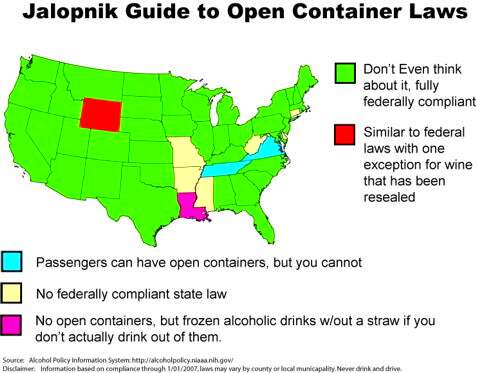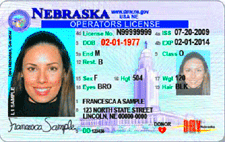Key Aspects of Wisconsin Open Container Law for Pedestrians
The Wisconsin Open Container Law regulates the consumption and possession of open alcoholic beverages in public places. This law aims to promote public safety and reduce alcohol-related incidents. It is essential for residents and visitors to understand these regulations, especially in areas with high pedestrian traffic, like downtown districts and parks. Knowing the specifics of this law can help individuals avoid fines and legal issues while enjoying their time outdoors.
What is Considered an Open Container
In Wisconsin, an open container refers to any vessel containing an alcoholic beverage that has been opened, has a broken seal, or has had some of its contents removed. Here are some common examples:
- Bottles of beer or wine
- Cans of beer or malt beverages
- Open liquor bottles
It’s important to note that containers must be clearly identifiable as containing alcohol. If you are carrying an open container, it can lead to potential legal repercussions, especially if you’re in a public place. Remember, simply having a drink in your hand can be classified as having an open container!
Exceptions to the Open Container Law
While the open container law is strict, there are some exceptions worth noting:
- Designated Areas: Some cities allow open containers in specific areas, especially during festivals or events.
- Private Property: If you are on private property, such as a backyard or inside a home, the law does not apply.
- Transportation: Passengers in a vehicle can consume alcohol as long as the container is not within the driver’s reach.
Understanding these exceptions can help pedestrians navigate the law better while enjoying their social activities. Always check local regulations, as rules can vary significantly by city.
Penalties for Violating the Open Container Law
Violating the Wisconsin Open Container Law can lead to serious consequences, both legal and financial. It’s crucial for everyone to be aware of these penalties to avoid getting into trouble. Typically, the penalties for having an open container in a public place include:
- Fines: You could face a fine ranging from $20 to $200 for a first-time offense. Repeat offenses may lead to higher fines.
- Citations: Law enforcement can issue citations that go on your public record, which might affect your insurance or employment opportunities.
- Community Service: Some offenders may be required to complete community service as part of their sentence.
- Alcohol Education Programs: In certain cases, you might be ordered to attend an alcohol education program.
Understanding these penalties can help individuals think twice before carrying an open container in public. Remember, it’s always better to be safe than sorry!
How the Law Affects Pedestrians
The Wisconsin Open Container Law significantly impacts pedestrians, especially in bustling urban areas. Here are a few ways the law affects individuals walking in public:
- Increased Scrutiny: Pedestrians carrying open containers may draw attention from law enforcement, especially in crowded areas.
- Public Safety Concerns: The law aims to reduce alcohol-related incidents, ensuring that pedestrians can enjoy public spaces safely.
- Social Events: During events or festivals, pedestrians should be mindful of specific rules regarding open containers, as some locations might allow it while others do not.
For pedestrians, being aware of these aspects of the law can help them navigate social situations responsibly and legally.
Tips for Pedestrians to Stay Compliant
Staying compliant with the Wisconsin Open Container Law is easier than you think! Here are some practical tips for pedestrians to avoid running afoul of the law:
- Know Your Surroundings: Familiarize yourself with local laws and ordinances regarding open containers in your area.
- Stay in Designated Areas: If attending an event where open containers are permitted, make sure you stay within those designated areas.
- Avoid Carrying Open Containers: If you plan to walk in public, consider finishing your drink before leaving the premises.
- Use Alternative Transportation: If you want to enjoy a drink while out, consider using a rideshare service to avoid the risks associated with walking with an open container.
By following these tips, pedestrians can enjoy their outings while staying compliant with the law, ensuring a safe and enjoyable experience for everyone!
Legal Consequences for Open Containers
The legal consequences for violating the Wisconsin Open Container Law can vary based on several factors, including the location of the offense and whether it’s a repeat violation. Understanding these consequences can help individuals make better choices when enjoying alcoholic beverages in public. Here are the key legal repercussions:
- Misdemeanor Charges: In some cases, especially if the violation is part of a larger offense, individuals may face misdemeanor charges, which can result in fines or even jail time.
- Increased Penalties for Repeat Offenders: If someone is caught with an open container multiple times, they may face escalating fines and more severe legal actions.
- Impact on Criminal Record: A citation for an open container can appear on your criminal record, affecting future employment opportunities and background checks.
- License Suspension: In certain situations, especially if alcohol is involved in other offenses, there could be consequences related to driving privileges.
It’s essential to remember that local jurisdictions may have additional regulations or penalties, so staying informed about specific laws in your area is key to avoiding unwanted legal trouble.
Frequently Asked Questions
When it comes to the Wisconsin Open Container Law, many people have common questions. Here are some of the most frequently asked questions and their answers:
- Can I drink alcohol while walking on the street? No, it is illegal to carry an open container of alcohol in public places unless in designated areas.
- What are the fines for violating this law? Fines can range from $20 to $200 for a first offense, with higher penalties for repeat violations.
- Are there any exceptions for special events? Yes, some events may allow open containers in designated areas, so it’s essential to check local regulations.
- What should I do if I see someone violating the law? If you feel safe, you can inform the person about the law. Otherwise, you can report the situation to local authorities.
These FAQs can help clarify common concerns and guide individuals in understanding the law better.
Conclusion
Understanding the Wisconsin Open Container Law is crucial for anyone enjoying time outdoors, especially pedestrians. By knowing what constitutes an open container, the exceptions to the law, and the potential penalties for violations, individuals can make informed choices that keep them safe and compliant. Remember to stay aware of local regulations and follow the tips provided to enjoy social outings responsibly. Ultimately, being knowledgeable about the law not only helps you avoid legal troubles but also contributes to a safer environment for everyone.


